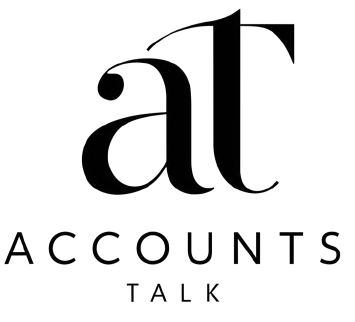In the complex world of commercial real estate lending, few cases have garnered as much attention as the Kennedy Funding lawsuit. This legal battle has sent shockwaves through the financial sector, raising important questions about bridge loans, contractual obligations, and the responsibilities of lenders in today’s market.
In this comprehensive guide, we’ll explore the intricacies of the Kennedy Funding lawsuit, its implications for the industry, and what it means for borrowers and lenders alike.
Introduction of Kennedy Funding Lawsuit

Kennedy Funding, a prominent player in the commercial real estate lending market, has found itself at the center of a legal storm that threatens to reshape the landscape of bridge loans. Specializing in short-term financing solutions, Kennedy Funding has long been a go-to source for businesses in need of quick capital.
However, recent allegations have cast a shadow over the company’s practices, leading to a high-profile lawsuit that has captured the attention of financial experts and borrowers alike.
Bridge loans, the cornerstone of Kennedy Funding’s business model, serve a crucial role in the real estate market. These short-term loans provide immediate financing while borrowers await more permanent funding sources. Typically, they offer:
- Quick access to capital
- Flexible terms
- Higher interest rates compared to traditional loans
- Shorter repayment periods
The importance of bridge loans in facilitating real estate transactions cannot be overstated. They allow businesses to:
- Seize time-sensitive opportunities
- Maintain cash flow during transitions
- Overcome temporary financial hurdles
However, the Kennedy Funding lawsuit has brought to light potential risks associated with these financial instruments, particularly when it comes to transparency and fee structures.
- More Post: Fappelo: Your Ultimate Guide to the Brand and Its Innovative Offerings
Releasing the Claims
At the heart of the Kennedy Funding lawsuit are allegations of exorbitant fees and hidden charges. According to the plaintiffs, Kennedy Funding’s practices diverge significantly from industry standards, raising concerns about predatory lending in the bridge loan sector.
“The initial fee of 10% of the loan amount is just the tip of the iceberg,” claims one plaintiff. “We discovered numerous additional charges that were never clearly disclosed upfront.“
Let’s break down the key allegations:
- High Initial Fees: Kennedy Funding allegedly requires an upfront fee of 10% of the loan amount, which is significantly higher than market standards.
- Hidden Charges: Plaintiffs claim that additional fees were tacked on throughout the loan process without proper disclosure.
- Lack of Transparency: The lawsuit alleges that Kennedy Funding failed to provide clear and comprehensive information about loan terms and conditions.
To put these claims into perspective, let’s compare typical bridge loan fees with those alleged in the Kennedy Funding case:
| Fee Type | Industry Average | Alleged Kennedy Funding Fees |
| Initial Fee | 1-3% | 10% |
| Interest Rate | 6-15% | Undisclosed higher rates |
| Processing Fees | 0.5-1% | Multiple undisclosed fees |
These allegations, if proven true, could have far-reaching implications for the bridge loan industry and commercial real estate lending as a whole.
The Effect: As Trust Crumbles
The ripple effects of the Kennedy Funding lawsuit have been felt across the financial sector. As news of the allegations spread, the company’s reputation took a significant hit, with many clients and investors questioning their trust in the lender.
The erosion of trust has manifested in several ways:
- Client Exodus: Many borrowers have reportedly sought alternative lending sources, fearing similar practices from Kennedy Funding.
- Investor Wariness: The lawsuit has made investors more cautious about bridge loan providers, leading to increased scrutiny across the industry.
- Industry Reputation: The entire bridge loan sector has come under increased scrutiny, with regulators and watchdogs calling for stricter oversight.
This crisis of confidence underscores the critical importance of trust in financial institutions. As one financial analyst puts it:
“Trust is the currency of the financial world. Once it’s lost, it can take years to rebuild – if it can be rebuilt at all.“
The Kennedy Funding lawsuit serves as a stark reminder of the delicate balance between profit and ethical business practices in the lending industry.
Restoring Faith
In the wake of the lawsuit, Kennedy Funding faces the monumental task of rebuilding trust with clients, investors, and the broader financial community. This process will likely involve a multi-faceted approach:
- Transparency Overhaul: Implementing clearer fee structures and more comprehensive loan disclosure processes.
- Customer Service Improvements: Enhancing communication channels and responsiveness to client concerns.
- Ethical Business Practices: Demonstrating a commitment to fair lending practices through third-party audits and voluntary compliance measures.
For the broader bridge loan industry, the Kennedy Funding lawsuit serves as a wake-up call. Lenders across the sector are reassessing their practices, with many implementing:
- More rigorous internal auditing processes
- Enhanced transparency measures
- Improved client education programs
These steps are crucial not just for individual companies, but for restoring faith in the entire commercial real estate lending ecosystem.
Main Issues in the Kennedy Funding Litigation

The Kennedy Funding lawsuit centers around two primary legal issues:
- Financial Mismanagement: Plaintiffs allege that Kennedy Funding engaged in practices that prioritized profit over client interests, leading to financial losses for borrowers.
- Contractual Breach: The lawsuit claims that Kennedy Funding failed to honor the terms of its mortgage contracts, particularly regarding fee disclosures and loan conditions.
These issues highlight the complex nature of financial agreements in the commercial real estate sector. The case underscores the importance of:
- Clear and enforceable contracts
- Transparent fee structures
- Ethical business practices in lending
As the litigation unfolds, it’s likely to set important precedents for how financial institutions interact with their clients and structure their lending agreements.
Legal Arguments in The Kennedy Funding Litigation
The legal battle between Kennedy Funding and the plaintiffs hinges on several key arguments:
Plaintiff Arguments:
- Significant omissions in loan disclosures
- Misrepresentation of mortgage conditions
- Unfair and deceptive business practices
Kennedy Funding’s Defense:
- Contracts were clear and agreed upon by all parties
- Fees were industry-standard and properly disclosed
- Plaintiffs failed to meet their contractual obligations
The case raises important questions about the nature of financial agreements and the responsibilities of both lenders and borrowers. It also highlights the need for clear, unambiguous contract language in financial transactions.
Effect on Financial Sector
The Kennedy Funding lawsuit has sent shockwaves through the financial sector, particularly in the realm of commercial real estate lending. Its impact is likely to be far-reaching:
- Regulatory Changes: The case may prompt regulators to implement stricter oversight of bridge loan providers and other short-term lenders.
- Industry Standards: Lenders may adopt more conservative practices, potentially making bridge loans less accessible or more expensive for borrowers.
- Market Perception: The lawsuit could lead to a general wariness towards bridge loans, impacting the broader real estate market.
These changes could reshape the landscape of commercial real estate financing, with potential long-term effects on property development and investment strategies.
Responses to the Kennedy Funding Lawsuit

The Kennedy Funding lawsuit has elicited a wide range of responses from various stakeholders:
- Financial Analysts: Many see the case as a necessary correction in an industry that had become too lax in its lending practices.
- Legal Experts: Some view the lawsuit as a test case for the enforceability of complex financial agreements.
- Industry Insiders: There’s a divide between those who see Kennedy Funding as an outlier and those who believe the case reveals systemic issues in bridge lending.
These diverse perspectives highlight the complex nature of the case and its potential to reshape industry norms.
Kennedy Funding Case Implications for Tomorrow
The outcome of the Kennedy Funding lawsuit could have significant implications for the future of commercial real estate lending:
- Precedent Setting: The case may establish new legal standards for transparency and disclosure in lending agreements.
- Regulatory Environment: A ruling against Kennedy Funding could lead to more stringent regulations across the bridge loan industry.
- Market Dynamics: The lawsuit may change how borrowers and lenders approach bridge loans, potentially altering deal structures and risk assessments.
As the case progresses, industry watchers will be keenly observing its potential to reshape the commercial real estate financing landscape.
What You Should Know about Kennedy Funding Case Study
The Kennedy Funding lawsuit offers valuable lessons for both lenders and borrowers:
For Lenders:
- The importance of clear, transparent communication
- The need for ethical business practices that prioritize client interests
- The potential costs of aggressive fee structures
For Borrowers:
- The critical importance of due diligence before entering financial agreements
- The need to fully understand all terms and conditions of a loan
- The value of seeking independent financial advice before signing contracts
This case study serves as a stark reminder of the complexities and potential pitfalls in the world of commercial real estate financing.
End Note
The Kennedy Funding lawsuit represents a pivotal moment in the commercial real estate lending industry. As the case unfolds, it continues to raise important questions about transparency, ethics, and the balance between profit and client interests in financial services.
Whether you’re a lender, borrower, or simply an interested observer, the outcome of this case will likely have far-reaching implications for how business is conducted in the world of bridge loans and beyond. As we await the final verdict, one thing is clear: the landscape of commercial real estate lending is poised for significant change.
Stay informed, stay vigilant, and remember that in the world of finance, knowledge truly is power.
FAQs
What is Kennedy Funding, and what services do they provide?
Kennedy Funding is a commercial real estate lender specializing in bridge loans, providing short-term financing solutions for businesses awaiting long-term funding.
What are the main allegations in the Kennedy Funding lawsuit?
The main allegations include excessively high initial fees, hidden charges, and lack of transparency in loan agreements.
How might the Kennedy Funding lawsuit affect the bridge loan industry?
The lawsuit could lead to stricter regulations, changes in industry standards, and a shift in how lenders and borrowers approach bridge loans.
What steps can borrowers take to protect themselves when seeking bridge loans?
Borrowers should conduct thorough due diligence, seek independent financial advice, and ensure they fully understand all terms and conditions before signing any agreements.
How can financial institutions maintain trust with clients in light of such lawsuits?
Financial institutions can maintain trust by prioritizing transparency, implementing clear communication practices, and demonstrating a commitment to ethical business conduct.
What potential regulatory changes might result from the Kennedy Funding case?
The case could lead to more stringent disclosure requirements, stricter oversight of fee structures, and enhanced auditing processes for bridge loan providers.
How does the Kennedy Funding lawsuit compare to other similar cases in the financial sector?
While there have been other cases involving lending practices, the Kennedy Funding lawsuit is notable for its potential to set precedents in the specific realm of bridge loans and commercial real estate lending.
What are the potential long-term implications of the Kennedy Funding case for commercial real estate lending?
The case could reshape industry norms, alter risk assessment practices, and potentially make bridge loans more regulated and potentially less accessible or more expensive for borrowers.
More Post:

Mia Hazel is a finance expert and the author behind insightful content that simplifies complex financial concepts. With a passion for empowering readers to make informed financial decisions, Mia breaks down everything from budgeting to investments with clarity and precision.
Her work is dedicated to helping individuals navigate the financial world with confidence and achieve their financial goals. Follow her for practical tips and advice on all things finance.

